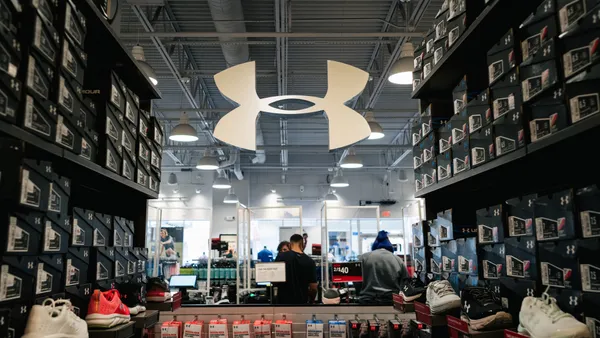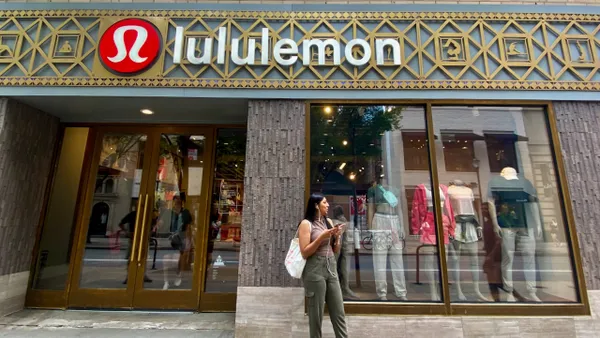LAS VEGAS — Macy's, like many department stores, is going through a much needed transformation. Comparable sales, which have fallen for the last 11 quarters straight, finally turned positive in the most recent reporting period, with sales up 1.8%.
CEO Jeff Gennette, who took the helm in March, told attendees at Shoptalk in Las Vegas Sunday that the company had a wake up call. Macy's, like most retailers, needed to redefine its purpose.
"We have a lot going for us, but Macy's heritage isn't going to be enough to guarantee success. Yesterday's playbook isn't going to work for tomorrow," he said. "Our customer is moving fast. She has one foot in the future, and we need to catch up."
Chasing that future means investing in technology that creates a differentiated and stylish experience.
The department store retailer has been doing some soul searching, which culminated in the launch of what Gennette calls its "North Star" strategy last year. Through forensic mapping, executives zeroed in on four major things customers want nowadays: inspiration, fashion, clear value and great experience.
Phones are the entry point to the brand now, Gennette said, and personalization will be a big part of the way forward. Mobile is also part of the answer to smoothing the checkout process, a particular pain point for shoppers. Mobile checkout — where customers can scan product barcodes to pay through the app, then visit a specific counter to get a bag and have product tags removed — will roll out to all the stores by the end of the year.
Gennette also said the company will double its online assortment by the end of the year. Macy's website and mobile app will also see a redesign.
Private label is more important than ever — a growing trend for retailers of all sorts from Target to Amazon. Macy's will boost private lines from 29% to 40% this year. "When we get the fashion right, customers will pay more," Gennette said.
But for those attracted to lower prices and more of a treasure hunt feel (think TJ Maxx) are being drawn to Backstage, the company's off-price unit. Stores with a Backstage experienced a performance lift of seven points, Gennette said, adding that over 100 such concepts will roll out mostly in malls this year, including an expansion to the West Coast.
Virtual reality is still a tough sell for the majority of retailers on a practical level. It's often looked at as a "shiny penny" technology that gets a lot of press, but doesn't solve any customer problems. Yet, there's one big retail segment that has seen increases in transaction size because of it at Macy's, according to Gennette: furniture.
By the summer, 60 Macy's stores will have VR equipment. Customers hoping to use the service first create a virtual replication of their home or specific room, and then drag and drop various products into the 2D space. Using the headset, customers can then jump into that model and see what a couch might look like in their living room, in 3D.
The technology will allow stores to showcase more furniture in half the space.
Gennette ended his speech with a nod to the company's new Growth 50 plan, which he said will help them determine what to roll out in 2019 and beyond. Integral to that plan is a growth culture, which means a simplified organization and reduction of management layers, meanwhile investing in stores, technology and employees.













